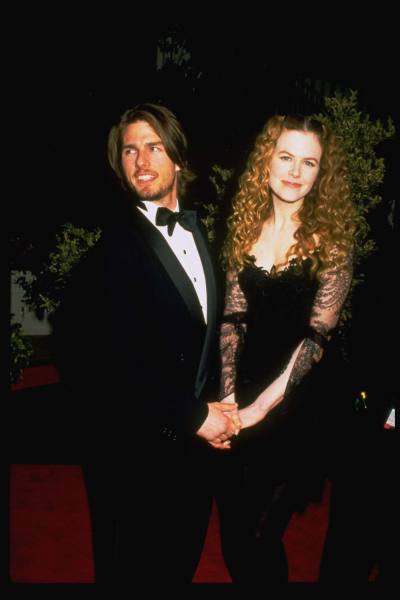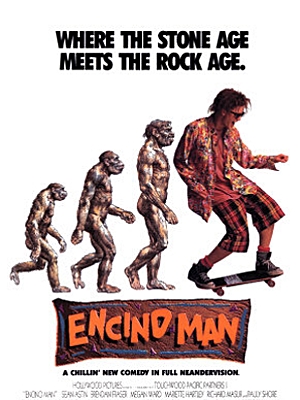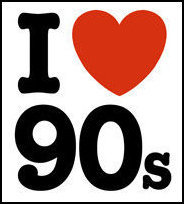
Today, on a Very Special posting on Children of the 90s: Sex! Drugs! Drinking! Puberty! School Violence! If it's an issue you don't feel comfortable discussing with your adolescent child, have no fear. We'll do the heavy lifting for you! Simply listen for your cue (a deep, all-business voice intoning, "On a Very Special..."), turn on the tube, and let the TV do its responsible parental heart-to-heart magic.
Teen TV in the 80s and 90s was frequently preoccupied with addressing heavy moral issues. The shows would suck you in with their teenspeak and lighthearted humor (and in the case of Blossom, enviable headwear), and then pull a quick switcheroo into explications on ethical adolescent behavior. One day we'd be empathizing with a character's case of acne or bad hair day, and the next we'd be tricked into learning a Very Special valuable lesson about the consequences of our decisions.
In this Very Special Episode, Six gets completely wasted
Blossom was a pioneer in the burdgeoning field of Very Special Episoding. NBC would promise us that a forthcoming Blossom episode was one our families "could not afford to miss." Yes, that's right. In terms of familial moral currency, NBC billed Blossom as the most valuable moral stock available. In accordance with traditional after-school special norms, we watched as Blossom and friends battled a slew of ethical dilemmas. Unlike some of the cautionary tale after-school movies, Blossom and Co. usually emerged morally victorious, making the right decisions and resetting their moral odometers to squeaky clean.
Mayim Bialik starred as Blossom Russo, a quirky, perky teenager with a penchant for flower-adorned floppy hats. Her mother essentially backs out of her role in the family, leaving her ex-husband Nick to fend for Blossom and her older brothers Joey (a dim-witted jock) and Tony (a recovering addict). With a premise like that, things could have gotten very heavy very quickly in the series, but writers were smart enough to keep it pretty light at the outset. Rather than focusing on the hardships facing a family torn apart by circumstances, the show centered more on the day-to-day lives of Blossom, her family, and her friends.
Oh, and also sex, lies, and teenagers. Catchy title, huh?
The show quickly segued into more controversial topics, giving Blossom an edgier feel than many of its sappy 90s sitcom counterparts. In today's entertainment marketplace it would be considered pretty tame, but in the 90s the show was touted for its tackling of tough issues in a realistic way. Blossom's world was mostly pretty family-friendly, but every so often they veered into PG-13 territory. While some of us would groan at the announcement of yet another Very Special Blossom, parents often took the hint that the upcoming episode might not be suitable for their younger children. Like I said, Blossom was a bit ahead of its time. It had parental rating indicators way before the networks mandated the caveat.
Speaking to the cast, Bialik played a great "everygirl". Young girls related to her because she was ordinary, though they wouldn't have wanted to be related to her; that would spoil their chances with hunky brother Joey. I had a fairly serious crush on Joey (Joey Lawrence) back in my Blossom-watching days. Every time he uttered his signature "Whoa" my heart fluttered just a bit. Jenna von Oy co-starred as Blossom's best friend and quick-talking confidant Six. Yep, Six. Didn't you hear? The good people at Blossom decided it was a name.
To be honest, Six is likely to blame for a generation of children growing up talking at a speed totally incomprehensible to anyone over the age of 30. We all embody her legacy very time one of our grandparents says, "Can you repeat that honey? You're talking too fast." Curse you, Six. You've muddled my chances at ever becoming an adequate public speaker.
Older brother Tony (Michael Stoyanov) played out a role uncommon to most glossed over 90s sitcoms, portraying the life of a struggling addict in recovery. Most teen-centric sitcoms would have an episode or two where kids were tempted by alcohol or drugs (and to be fair, so did Blossom) but at the end of the day none of the major players ever seemed to know any actual perpetual users. While Tony's role certainly could have been darker, the show didn't sugarcoat the breadth of his daily struggles. You've got to give Blossom some credit for shedding light on a widespread issue once largely absent from network shows.
In addition to a well-rounded regular cast, Blossom brought in more than its fair share of impressive guest stars. The show boasted cameo appearances from celebrities like Hugh Hefner, Will Smith, and Mr. T. Even ALF came along for the ride, appearing in a bizarre crossover episode. Even though he was just a puppet, he was still a pretty big name in TV back then.
Check out Alf around the 8 minute mark
Blossom had edge but it wasn't groundbreaking. It didn't try to deny that sometimes teenagers act like teenagers and not like their counterparts in most sitcoms. The show let the kids make their mistakes, deal with the consequences, and live to tell about it. Plus, they got to wear awesome hats while doing it. What's not to like?















